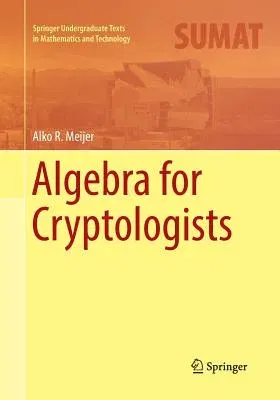Alko R Meijer
(Author)Algebra for Cryptologists (Softcover Reprint of the Original 1st 2016)Paperback - Softcover Reprint of the Original 1st 2016, 22 April 2018

Qty
1
Turbo
Ships in 2 - 3 days
In Stock
Free Delivery
Cash on Delivery
15 Days
Free Returns
Secure Checkout
Part of Series
Springer Undergraduate Texts in Mathematics and Technology
Print Length
301 pages
Language
English
Publisher
Springer
Date Published
22 Apr 2018
ISBN-10
3319807994
ISBN-13
9783319807997
Description
Product Details
Author:
Book Edition:
Softcover Reprint of the Original 1st 2016
Book Format:
Paperback
Country of Origin:
NL
Date Published:
22 April 2018
Dimensions:
25.4 x
17.78 x
1.68 cm
ISBN-10:
3319807994
ISBN-13:
9783319807997
Language:
English
Location:
Cham
Pages:
301
Publisher:
Weight:
548.85 gm

